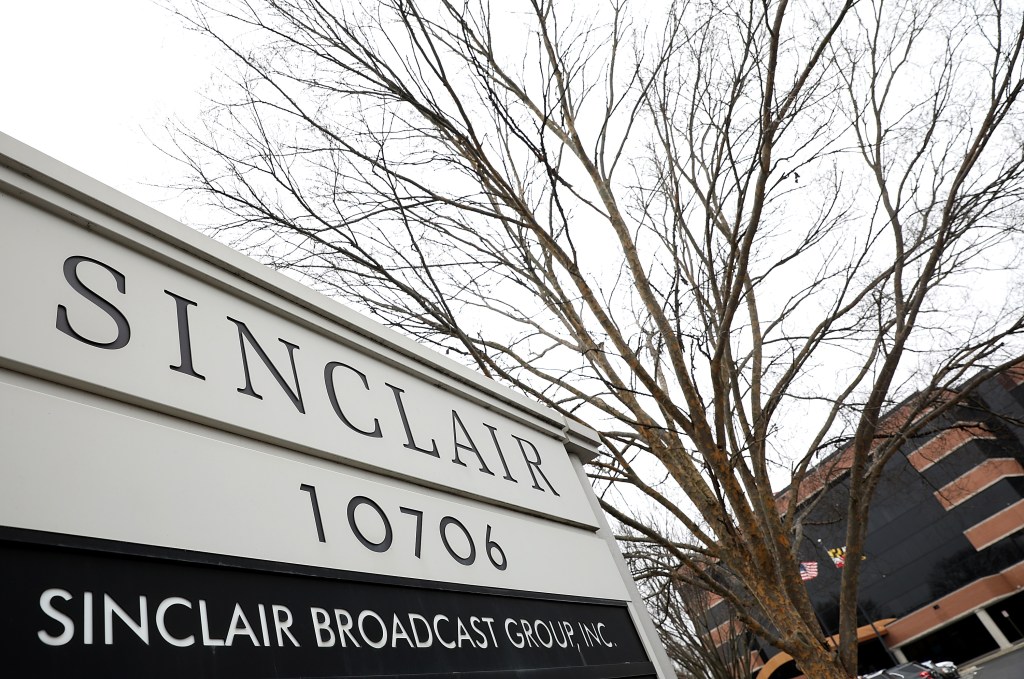Major local TV station owner Sinclair Inc. says it has been conducting merger talks for several months with rival E.W. Scripps.
In an SEC filing, the company said it had acquired 8% of Scripps Class A shares in the open market for $15.6 million.
Sinclair says a deal could be completed in nine to 12 months.
Scripps, whose market value is about $277 million, operates 60 local stations in 40 markets, ranking No. 9 on trade group BIA’s annual rankings. It also owns the Ion broadcast network and multicast networks like Court TV, Bounce and Grit and is known for its annual spelling bee, which marked its 100th anniversary last summer. Ion has acquired rights to the WNBA and other women’s sports.
Like another proposed transaction in the local TV sector, Nexstar’s pending $6.2 billion bid to acquire Tegna, a Sinclair-Scripps combination would require a change to federal rules limiting station ownership. The FCC currently will not allow ownership of stations reaching 39% of U.S. households, but Donald Trump’s appointed chair of the regulatory agency has voiced strong support for lifting the cap.
Stations say they are unfairly restrained at a time when tech giants face no similar limits to their reach in media, an argument echoed by FCC Chair Brendan Carr. Critics of the consolidation say it will ultimately reduce the amount of local TV news voices, putting the local TV business on the trajectory followed by the newspaper and radio industries before it.
Even if the FCC moves to lift the cap, there is debate about whether Congress would need to get involved. Anna Gomez, the lone Democrat on the regulatory body, has said the FCC does not have the power to unilaterally change ownership rules.
Sinclair’s filing said the merger “would be structured to require no external financing as the combined company would maintain each company’s respective debt and preferred capital structures. As a result, the transaction would avoid significant refinancing costs while meaningfully reducing the Issuer’s leverage through the realization of synergies and lowering future refinancing risk.”
It pegged the annual synergies at $300 million.
Sinclair, like Nexstar, is championing the consolidation move as a way of preserving its “vital public service role in producing local news.” The two top players in local TV both gained notice this year when they pulled Jimmy Kimmel’s late-night show off their stations, forcing ABC to suspend him in the wake of comments he made about the shooting death of conservative activist Charlie Kirk.
Consolidation and “intensifying competition,” Sinclair said in the filing, proves that “further scale in the broadcast television industry is essential to address secular headwinds and compete effectively with larger-scale big-tech and big-media players, as well as major broadcast groups.”

